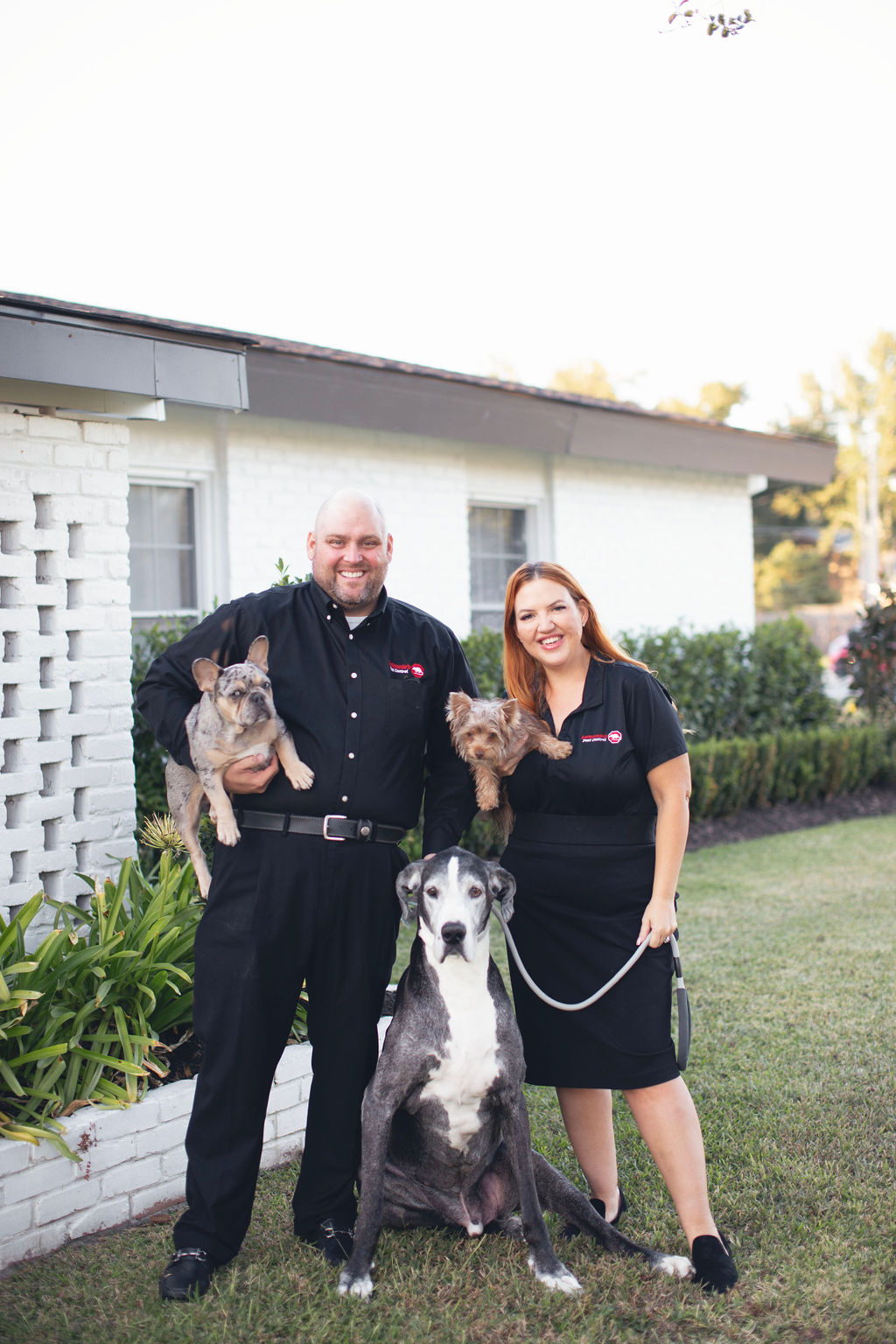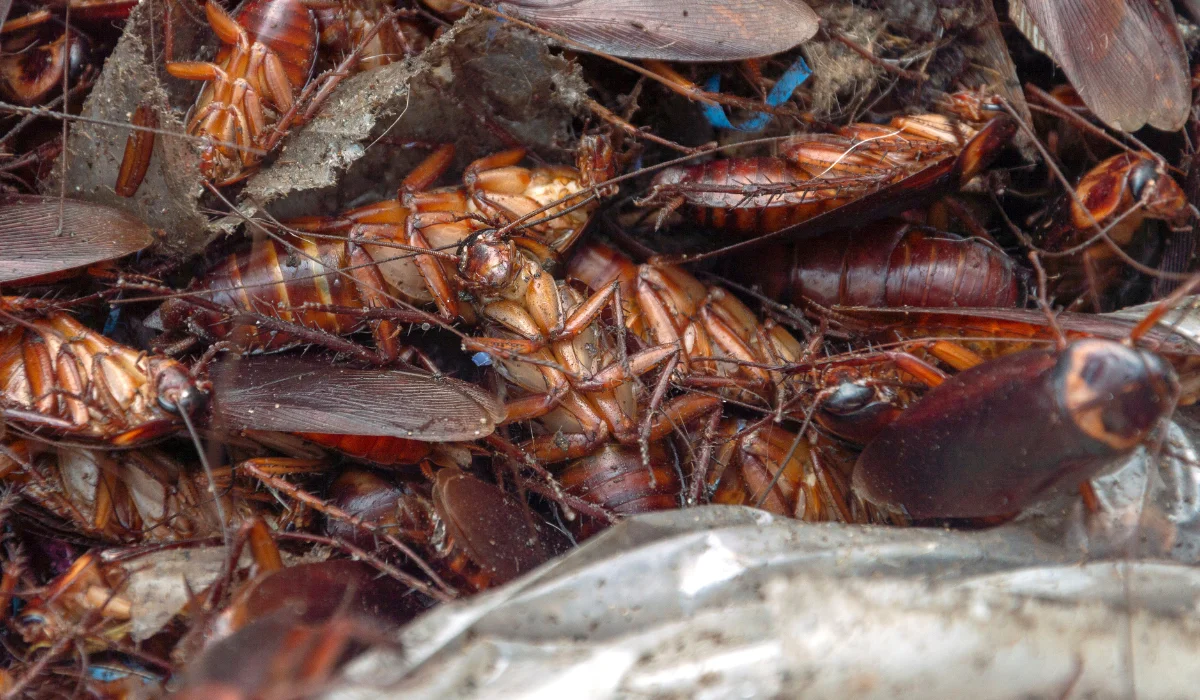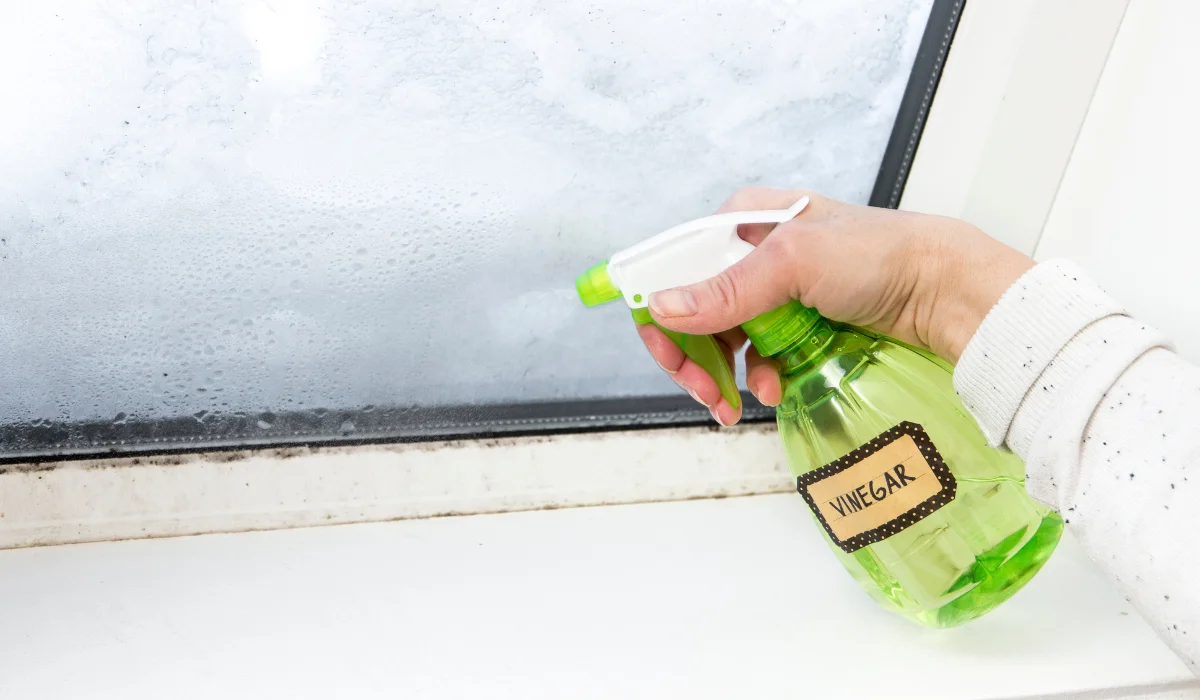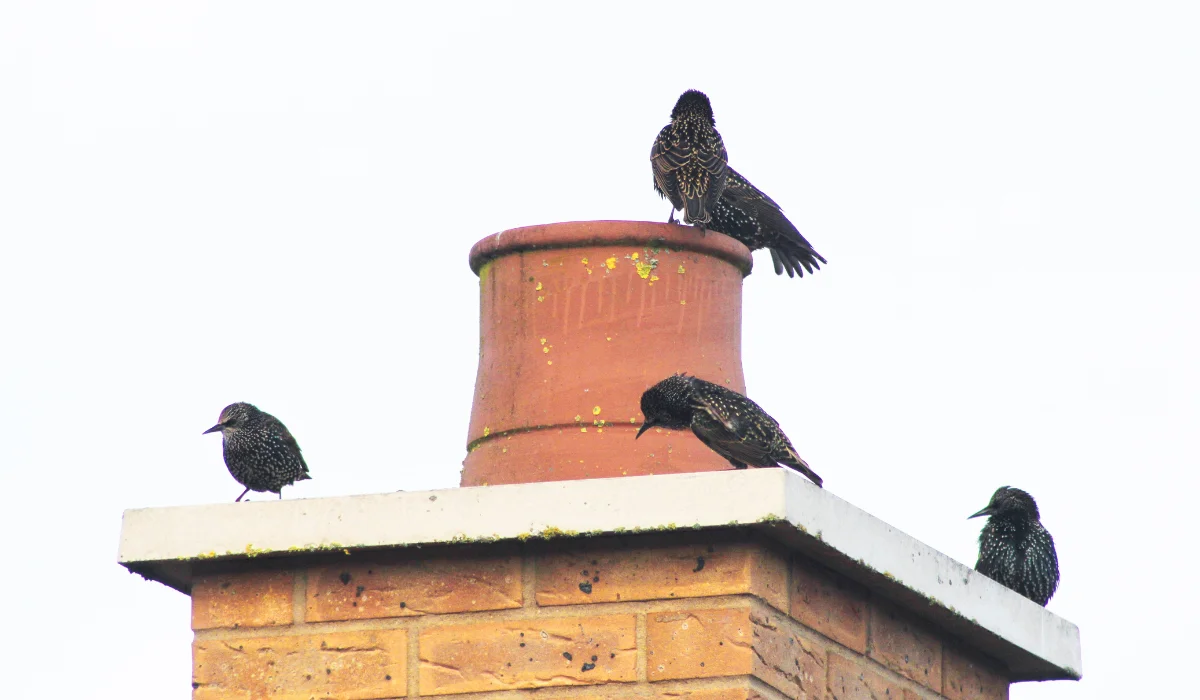There’s nothing worse than lifting the lid of your grill, getting ready to throw on some steaks, and finding a wasp nest instead.
Down here in Louisiana, where grilling is practically a summertime tradition, wasps love to take advantage of that quiet, undisturbed space inside your BBQ.
If you’re tired of dodging yellowjackets or hornets every time you fire up the pit, it’s time to take action. In this article, we’ll walk through practical ways to keep wasps out of your grill, why they love it so much, and what to do if you find a nest.
Key Takeaways
• Wasps often build nests in grills because they’re warm, sheltered, and undisturbed most of the week.
• Keeping your grill clean and covered is one of the best ways to prevent wasps from moving in.
• You should never use your grill if there’s an active nest inside—wasp stings can be dangerous.
• Professional pest control can safely remove nests and keep your yard pest-free for the summer.
Why Wasps Love Your Grill
Grills make the perfect home for wasps, especially paper wasps and yellowjackets. Most people only use their grill a few times a week, which means it stays quiet and dark, two things that attract stinging insects.
During warmer months, the metal of the grill retains heat, creating a warm and dry space that feels just right to a wasp queen looking to build a new nest.
Wasps are also attracted to leftover food, especially protein-rich items. If you’ve ever left a bit of meat stuck to the grate or sauce splattered near the burners, you’ve unknowingly created a buffet. They rely on these food sources not only for their survival but also to feed their developing larvae.
While they play an essential role in pollination and keeping specific insect populations in check, wasps around your grill bring the risk of painful stings and possible infestations.
The hollow cavities under grill lids and side panels mimic natural shelters, such as tree hollows or under eaves. They give them the cover they need to start chewing wood fibers and build nests undisturbed.
In late summer, as colonies grow, wasps become even more protective of their nest sites, and the risk of getting stung increases significantly if they’ve claimed your grill as their home.
Signs You’ve Got Wasps in the Grill
Sometimes you don’t know there’s a problem until it’s too late. Wasps flying in and out of your grill lid or hovering near the side panels are often the first sign. You might also hear a buzzing sound when the grill is moved or opened.
If you notice a visible nest tucked under the lid or attached near the burner knobs, there’s a good chance it’s active.
Another common sign is finding a buildup of greasy residue or leftover food that’s suddenly attracting more insects. Wasps may even start to hang around the patio furniture if you’ve been hosting frequent BBQs. It only takes one forgotten spill or dropped wing to lure them in.
How to Keep Wasps Out of Your Grill
The most effective way to prevent wasps from taking over your grill is to keep it clean. After each use, scrape the grates and wipe down surfaces with soapy water or a mix of dish soap and vinegar.
Leftover food, especially meat and sugary marinades, is a magnet for wasps seeking protein and fuel for their growing colonies.
Next, cover your grill when it’s not in use. A tightly fitted grill cover helps block access to the warm, hollow spots that make perfect nest sites. Look for one that fits snugly without leaving gaps near the bottom or vents. Even small openings are enough for stingers to slip through.
If your grill has side vents or openings, use a fine metal mesh to cover them. It will allow air to flow while keeping pests out. Be sure to avoid covering any exhaust points that could pose a safety hazard.
Consider moving the grill away from shaded areas, such as fences, trees, or eaves, where wasps are more likely to start building nearby nests.
What to Do If You Find a Wasp Nest in Your Grill
If you spot a nest inside your grill, avoid the temptation to poke or spray it. Disturbing an active wasp nest can result in painful stings, especially from aggressive species like yellowjackets and hornets.
Wasps sting and inject venom that causes swelling, redness, and in some cases, severe allergic reactions. The safest approach is to leave the lid closed and keep your distance. Don’t attempt to light the grill to smoke them out.
It can cause the wasps to swarm, putting you at risk of being stung multiple times. Instead, call a professional for wasp nest removal. At LaJaunie’s Pest Control, we offer wasp control services throughout Southern Louisiana that include safe and effective removal of nests from grills, eaves, porches, and more.
Our technicians wear protective clothing and use specialized tools to treat the nest without provoking the colony.
How to Prevent Wasps From Coming Back
Even after a nest is gone, wasps may return if the conditions are right. Prevention is key to keeping your outdoor cooking space pest-free all summer. Start by keeping the grill spotless.
Clean it thoroughly after each use, removing all grease, crumbs, and sauces. Wasps follow food smells, and even small traces can invite them back. Store your grill indoors if you have space, especially during the off-season.
If that’s not possible, invest in a high-quality grill cover and check it regularly for gaps or signs of tampering. Inspect nearby areas, such as eaves, fences, and outdoor furniture, for early signs of nest-building. Removing old nests discourages wasps from reusing familiar spots.
You can also apply natural deterrents, such as peppermint oil, near the grill, or use wasp-repellent pouches designed for outdoor spaces. Sealing entry points on nearby structures with caulk or mesh can further limit the chances of reinfestation.
Don’t forget to treat the area around the grill with mild pest control products or enlist ongoing pest management help.
Our team at LaJaunie’s Pest Control can set up a regular service plan tailored to your yard and the types of wasps common in your area. For homeowners in Louisiana, regular treatment is often the best line of defense during peak wasp season.
Know Your Enemy: Common Wasp Species in Louisiana
Louisiana is home to several types of wasps, each with different nesting behaviors and threat levels. Knowing what kind you’re dealing with can help guide the proper treatment.
Paper wasps are the most common species you’ll find around homes. A paper wasp nest is umbrella-shaped and often built in sheltered spots, such as under eaves, porch ceilings, and, yes, grill lids.
They’re less aggressive than hornets, but they will defend their nests with painful stings if threatened. Their long legs and reddish-brown coloring help distinguish them.
Yellowjackets are more aggressive and known for building enclosed nests underground or in wall voids.
They’re often seen scavenging around trash cans and BBQ leftovers. Unlike paper wasps, yellowjackets can sting multiple times and usually attack in swarms if disturbed. Their compact bodies and black-and-yellow coloring make them easy to identify.
Hornets, a type of large wasp, tend to build round, enclosed nests high in trees or tucked into wall cavities. They’re the most territorial of the bunch and can be dangerous if their nest is close to your home. With larger stingers and more venom, hornet stings are excruciating and sometimes require medical attention.
Though wasps play a role in pollination and controlling other pests, they quickly become a hazard when they move into your living space. If you’re seeing more activity than usual or suspect a nearby hornet nest, it’s best to let the pros at LaJaunie’s step in.
Need Help This Summer?
If wasps are turning your grill into a danger zone, it might be time to call in backup. At LaJaunie’s, we’ve helped hundreds of homeowners across Southern Louisiana reclaim their backyards from stinging insects.
Whether you’re in Houma, Thibodaux, or the Baton Rouge area, our wasp and hornet control specialists can inspect your outdoor spaces, remove nests safely, and keep your BBQ time wasp-free all summer long. Just give us a call, as our pest control services come with protective strategies and a retreat guarantee so that you can cook out with peace of mind.
 By: LaJaunie's Pest Control
By: LaJaunie's Pest Control 



